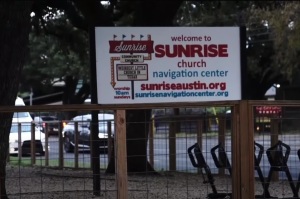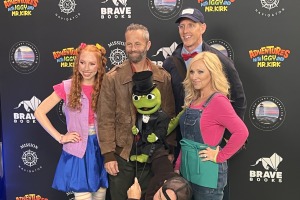Human trafficking survivor reveals how she escaped abuse and manipulation
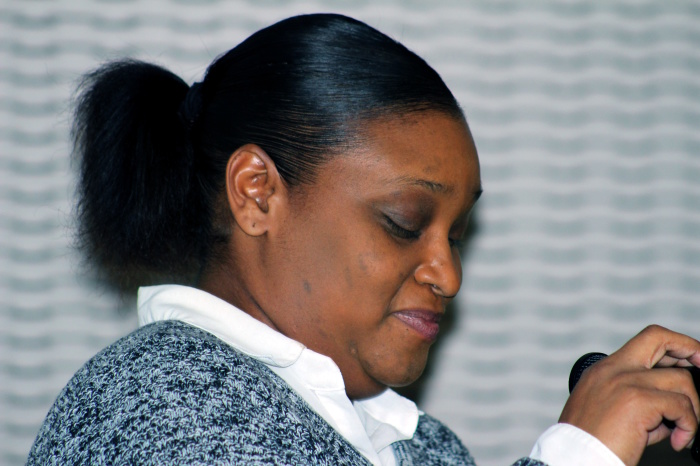
NEW YORK — Moments after human trafficking survivor Chereese Smith began telling her story inside a conference room at the Omni Berkshire Place Hotel in Midtown, Manhattan, on Monday morning, the audience hushed.
It was the first time that the 32-year-old, who now works for global anti-human trafficking organization A21, would reveal her real name to the public.
"As a survivor, my story isn't simple or easy to tell," Smith began. "When I first shared my story, I went by a different name. At that time, I wasn't ready to fully reveal my identity. I was still fresh out of being trafficked. I was dealing with trauma and uncertainty of what it meant to reclaim my life. But today, I stand before you using my real name, ready to embrace my journey and the strength that comes with it."
At this point in her journey, Smith is fully revealing her identity to help boost the launch of A21's "Can You See Me?" national awareness campaign to help the general public recognize indicators of human trafficking, and report suspected scenarios ahead of the peak holiday travel season.
The campaign features vivid advertisements on Times Square billboards, transportation hubs and digital platforms, urging citizens to take action through national hotlines.
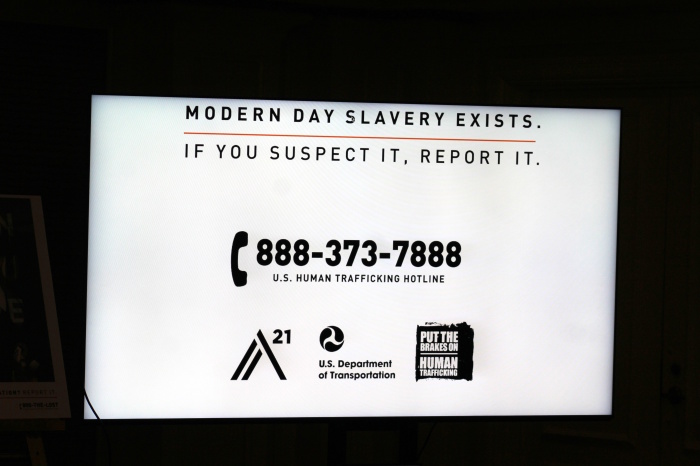
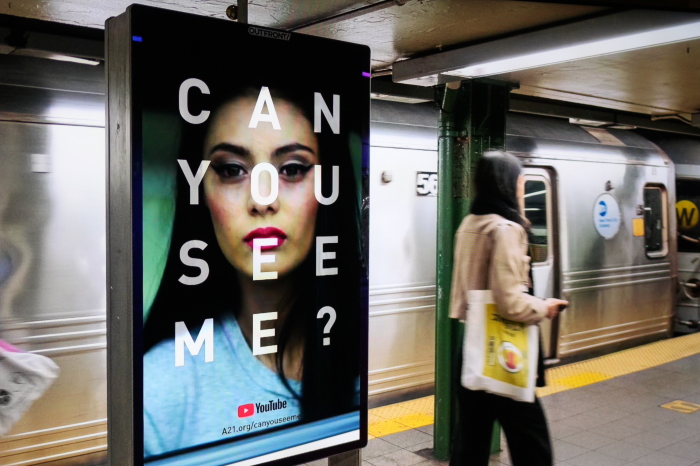
Human trafficking or trafficking in persons, according to federal authorities, "is a crime in which traffickers use force, fraud, or coercion to compel individuals to provide labor or services, including commercial sex."
To help get their message out about their campaign against the crime nationally, A21 is collaborating with the Federal Bureau of Investigation, Homeland Security Investigations New York, the National Center for Missing & Exploited Children, advertising firms LAMAR and Outfront Media, Amtrak, and Omni Hotels.
The organization is amplifying voices like Smith's to drive their message home.
"I endured years of trauma, abuse, and manipulation, but today, I'm not here to focus on just the darkness. I want to share with you what it took to get out of and why is it so important that we all work together to stop this from happening to anyone else," said Smith.
"It is all about responsibility to raise awareness, overcome misconception and ensure people can recognize the signs of human trafficking."
Smith says she was lured into trafficking by a family friend who offered her "a chance to hang out" when she was just a teenager.
"Little did I know that choice would change my life. While I was spending the time with him, one day, I met another girl who was already involved in [that] life, also known as sex trafficking. She pulled me inside and asked me if I wanted to party and make some money. At that moment, I was unaware of the dangerous path I was about to step onto, thinking it would be an exciting opportunity instead of a descending into a nightmarish reality," she recalled.
"I was quickly taken to the track in the Bronx and, days later, taken to New Jersey," she said.
Soon, she would find herself with no money and no way to return home. She would meet another girl who told her she could help but only put her in the clutches of a new trafficker who physically abused her.
"After lunch one day, I woke up to one of the girls …. engaged in a conversation with our trafficker that lasted about 20 minutes. Later, I heard a knock on the door. When I looked through the peephole, I saw it was my trafficker and his cousin. When I opened the door, I was brutally beaten, and the result was that my jaw was broken in multiple places," she revealed.
"I was beaten because my trafficker's cousin deceived him, claiming that I had expressed feelings for him, that I had shown interest. In reality, I had been sexually assaulted but hadn't informed my trafficker. Instead of telling the truth, the cousin lied about what had happened after things got even worse," Smith explained. "I was exploited and mistreated, consistently told that I had to earn thousands of dollars before I could leave."
It wasn't before another year of "violence, isolation and manipulation" that Smith said she was able to convince her trafficker to attend a "follow-up appointment" alone and she went home to her mother. The escape, however, didn't last long.
"I was terrified that they would come to our house and harm my family as they had my personal information, including my state ID, social security card and birth certificate. To protect my family, I returned to the streets, hoping that by putting myself in danger, I could keep them safe from potential threats," Smith admitted.
She soon became a victim to a third trafficker who she said controlled every aspect of her life.
"They didn't just take my body; they took my mind. They controlled everywhere I went, who I talked to, what I had to say and how I felt about myself. They took away my dignity and made me believe that I had nothing else to offer except what they were forcing me to do," she said.
Smith said she finally had enough one night after she was drugged and then physically and sexually abused. She reached out to a female detective for help who she had met after she escaped from her first trafficker.
"While my trafficker was asleep, I sent Detective Rose a picture, a piece of mail that I had my address on it. The police organized a raid, and that was when I began reclaiming my life," she said.
It has been a difficult journey for Smith, who says her emotional and psychological wounds took years to heal.
"While the physical trauma was undeniable. It was the emotional manipulation and the persistent feeling of being trapped that haunted me the most. Today, I stand here as a survivor, but many others are still trapped in a horrific cycle, often without realizing they are victims too," Smith explained.
"Human trafficking is not an abstract problem. It happens in our cities, and it affects people you might know. It's crucial to understand that trafficking is a crime of exploitation and control, and it's about manipulation. Victims often face judgment as prostitutes, but most did not choose this life," she said.
"They were deceived and forced. We must acknowledge their humanity and support their recovery."
Because trafficking tends to happen locally in familiar settings, Smith says it is easy for people to miss the signs that someone is being trafficked.
"I've experienced the system firsthand and witness how easy people can overlook the signs. Law enforcement, for an example, can glance at a situation as merely a domestic dispute, but often, it runs much deeper than that. When I was in the streets, I remember how some officers walked right past me and my trafficker mistakenly believing it was a personal issue," she said.
"They didn't understand that I was being trafficked and that I wasn't there by choice. If law enforcement will take the time to listen and dig deeper, that's when they can uncover the truth."
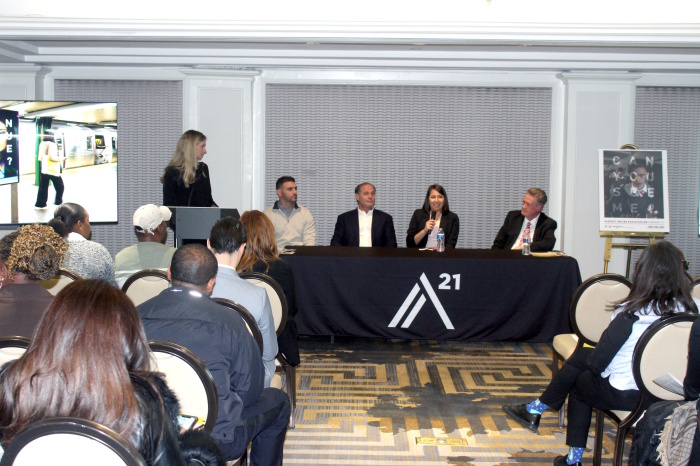
Others, like transportation workers, healthcare professionals, hotel employees and even everyday commuters, can help prevent human trafficking by educating themselves about the scourge.
"The ripple effect of awareness is huge. The more people know about human trafficking, the more people who can identify it, the more we can gather data, change policies and save lives. And that's what it's all about, changing lives, helping people rebuild and keeping others from falling into this trap," Smith, who celebrated a birthday on Monday, said.
"Don't wait until there's somebody you know. Stand up, get involved and be part of the change."
Contact: [email protected] Follow Leonardo Blair on Twitter: @leoblair Follow Leonardo Blair on Facebook: LeoBlairChristianPost
















